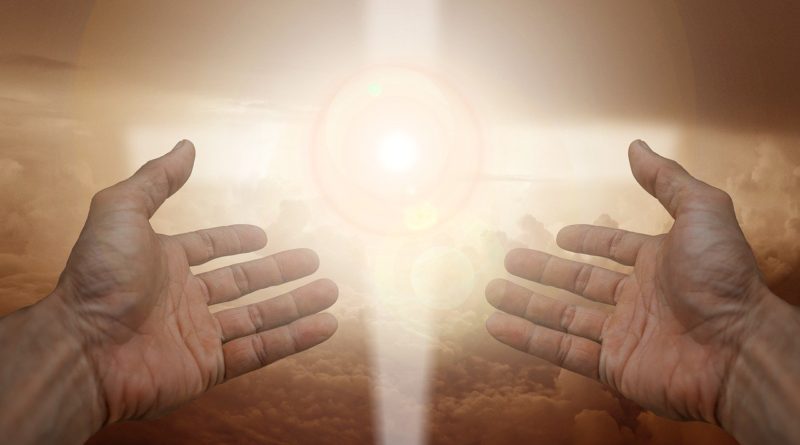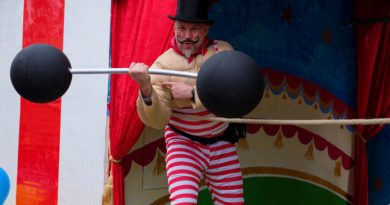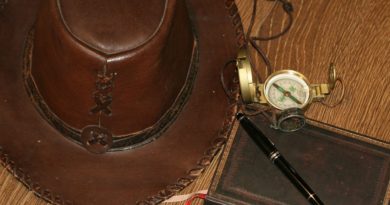God’s Great Acts
By John DeSimone
You are not alone if you’re finding it difficult to concentrate.
In various ways, the virus has all of us by the throats. One of my friends is in the hospital, and many others have told me they have gotten violently ill, but just for a short period. I, too, suffered through a few days of high temperature, sharp chills, and mounting fear. My doctor tried to reassure me that I didn’t have the Covid-19. But how did he know? He did not have any tests. He only had his experienced eye.
This was early in February, shortly after I returned from a quick trip to the East Coast. However, thankfully, with my wife’s help, the illness passed.
Others in my community haven’t been so fortunate. Everyday reports of increasing illness counts followed by death counts dominate the news. I’m sure your city is similar, if not worse.
The lockdown seemed radical when it was announced, but necessary. As the days ticked by, the time inside has become numbing. My wife keeps asking me to take her somewhere. But where? Everything is closed. Some days we drive just to drive, stopping nowhere and only returning to where we began hours before. How long will this go on? It feels like treading water or running in place.

People are Getting Antsy
People are getting antsy about this lockdown. They want their freedom, and even reasonable people doubt the wisdom of isolation.
And while different folks are in different financial situations, almost all of us are affected by the economic repercussions of a closed down society. It’s only fair to question if there aren’t alternatives, after all, look at what the Swedes are doing.
As the days drag on, this lockdown is scaring people. Typically, reliable voices are calling it an affront to our civil liberties. One of my friends confided in me that he was certain once this emergency had passed, that our rights would not be restored. That somehow, this lockdown has become the prelude to a significant cultural and social transformation that will change our way of life. Maybe even our constitutional system. Worse yet, it could be the beginning of the end.

Is This the Beginning of the End?
I don’t have to tell you that the bad news prophets, the conspiracy theorists, and the fake news specialists are working to the full measure of their social media reach. All this breeds fear. Fear that our leaders don’t know what they’re doing, fear that the virus will never leave us, fear that everything we’ve worked for will be lost if they don’t open up the economy.
I’ve lost considerably as an independent author. On March 10, I held my first and last public event for my historical novel, The Road to Delano. The next week our governor closed down the state.
All the bookstores and all the events I had worked for months to plan were canceled. I’d worked on the book over a half a decade, and even with its excellent pre-sales, it doesn’t look good right now. I have more fears about the future than I’ve ever had.
I juggled these fears in the back of my mind until one day, I came across a quote from John Dos Passos, a man who had reflected much on the meaning of history. He wrote in his essay, “The Uses of the Past:”

“In times of change and danger when there is a quicksand of fear under men’s reasoning, a sense of continuity with generations gone before can stretch like a lifeline across the scary present and get us past the idiot delusion of the exceptional Now that blocks good thinking.”
It is only human nature to think we live in exceptional times in human history. To believe that nothing like this has ever occurred, that it will be the end of us, is the view of those who have a broken understanding of the past. I believe that history can inform us and give us perspective and grant us hope—if we are perceptive enough to listen and learn.

American Rebels and Smallpox
I just finished an excellent account of the Founding Fathers, American Rebels, by Nina Sankovitch. A detailed work of historical writing about three distinct personalities who were the sparkplug of the independence movement. I highly recommend it.
She notes that the year before the colonial affairs broke into open warfare, a smallpox epidemic swept through the crowded Boston neighborhoods. The city leaders acted quickly, going from house to house, removing every infected person to a hospital outside the city limits. Then quarantining the residents in the infected person’s house.
The noticeable difference with smallpox to our Covid-19 contagion is the distinguishable raised verrucae that mottled the skin of the pox patient. It was easier to know who was infected.
Quarantine of patients, isolation of those who were exposed, and fumigation were the only remedies. By acting quickly and authoritatively, the colonists quickly tamped down the spread of the disease and, well, the rest is history. Shortly after that, able-bodied men commenced the revolt.
When the flu broke out in Kansas in early 1918, it traveled with American soldiers across the oceans, wreaking havoc on Europe. In the fall of that year, it returned to the U.S. shores with a vengeance.

By this time, the U.S. knew it was coming. In Philadelphia, they passed an ordinance against spitting, sneezing, and coughing in public, but refused to cancel a parade scheduled days after the first cases appeared. The flu spread like slithering gangrene infecting the young population, killing thousands. It was especially deadly to those between 20 and 40 and in good health.
St. Louis had one week to prepare for the onslaught speeding toward it from the East. As soon as the first case appeared in the city, Health Inspector, Dr. Max Sarkloff, recommended the mayor immediately lock down the city, which he did.
He closed movie theaters, restaurants, schools, and banned all public gatherings (including all religious services), disrupting the routines of life. In subsequent months, St. Louis, the tenth-largest city in the country, had the lowest death rate among major U.S. cities, and half the death rate when compared to Philadelphia.
By 1920, the danger passed, and life returned to normal. It could have been the pent-up energy of the plague ordeal that led to the exuberance of the roaring ’20s. Perhaps. But our economy, our nation, and our institutions and cherished liberties survived the lockdown.
What our economy didn’t survive just a few years later were the speculators and Wall Street shysters. The 1930s were even more miserable and decimating than the flu epidemic, a plague of greed and malice and epic loss covered our land.
But we survived, and our nation through inspired leadership became stronger. Lifelines go back even farther.

God’s Great Acts
The Bible tells us to remember. The Old Testament never uses the word history, but many, many times, it calls us to remember the past, God’s great acts, and to learn from the deeds and misdeeds of others. Paul in the New Testament tells us in his letter to the Romans:
“For whatever was written in earlier times was written for our instruction, so that through perseverance and the encouragement of the Scriptures, you might have hope.”
I reflect, back to the Psalmist, who knew a thing or two of isolation, rejection, fear, anxiety, and days of leanness:
“Even though I walk through the valley of the shadow of death, I fear no evil, for You are with me” (Psalm 23:4).
David knew about living in shadow days. We, too, are in days of shadows. But we can have confidence through our faith in God, that we do not isolate alone in our caves.
This is a lifeline that the history of our faith throws us, confidence in the companionship of God.
Stay connected to what the men and women of the past have done in days of darkness. Learn from what leaders of the past have done to protect their communities and stay safe.
If you’ve read The Road to Delano, you can leave a review on Amazon or Goodreads. If you haven’t purchased your copy yet, you can get it here: The Road to Delano. If you have any comments you can reach me at jrd@johndesimone.com.


John DeSimone writes novels and memoirs. He’s been an adjunct professor of English at Biola University and holds an MFA in Creative Writing from Spalding University. For eight years, he directed the OC Writers Conference in Newport Beach, California. Today he is a full-time author living in Claremont, California. Discover more at www.johndesimone.com.



